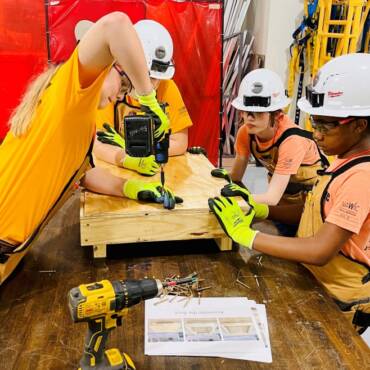As a 20-year residential HVAC business owner, my ongoing challenge has been maintaining happy and consistent customer service representatives (CSRs). Despite competitive wages, improved benefits, and better workspaces, the constant ringing of phones means we cycle through staff frequently. With our company generating $10 million in revenue, we employ five-to-six CSRs, and this turnover remains a persistent issue.
Training a new CSR is expensive and time-consuming. During training, we are understaffed, and it takes months for new hires to fully understand all the necessary aspects of the job. But what if we could train an AI CSR?
Enter Nina. Nina was an AI we implemented to handle our phone calls after hours and during busy periods when all live CSRs were occupied. Nina could have any name and even a foreign accent. Currently, we use Joe, who has an Australian accent that our customers often mistake for British. The advantage of Nina and Joe is that we only need to train them once on an issue, and they will consistently handle it correctly from then on. They can handle variations of problems with additional training, eventually covering all scenarios.
The key is that we train them to answer calls exactly how we want, conveying our desired message. While there are growing pains and occasional issues, the technology improves daily. Listening to AI calls can be painful initially, much like reviewing calls from human CSRs, but AI offers a consistency that humans cannot.
Humans have good and bad days, limitations on call capacity, and can be overwhelmed. AI does not. Joe can handle 10,000 calls simultaneously without rollover, answering services, or voicemail, delivering the same consistent message at any time.
Do customers know they are speaking to AI? Sometimes yes, sometimes no. They always have the option to speak to a real person. The main goal is solving the customer’s problem, whether by Nina, Joe, or another AI.
Considering long-term planning, even if you don’t replace current CSRs with AI, it can be a backup plan. Training AI gradually ensures you’re prepared for eventual staff departures. You might start by having AI answer phones between midnight and 4 a.m., slowly learning and improving.
I chose to train our AI during the peak summer months when calls were overwhelming. Initially, there were painful conversations with clients, but it was better than sending them to an answering service or voicemail. Now, a few months in, the AI’s performance has improved significantly, tailored to our business model and messaging.
AI is not a future concept; it is here now. It continuously learns and never needs retraining on the same issue twice. This allows for growth with reduced labor costs and fewer mistakes. We will always keep human CSRs because a personal touch is essential in a human-centric business. However, we won’t need to hire new CSRs as frequently, thanks to AI.
Our journey with AI was supported by Free2Grow, a vendor that has been remarkably responsive and helpful, shaping our AI to deliver consistent and perfect messaging over time.
AI CSR has its challenges, but it is a game-changer for businesses like ours. It enables us to maintain service quality during peak times and when we are short-staffed. The AI learns from every interaction, becoming more efficient and effective with each call. This level of adaptability and learning is unparalleled.
The transition to using AI for customer service doesn’t happen overnight. It requires careful planning, training, and monitoring. There will be bumps along the way, but the long-term benefits far outweigh the initial hurdles. Our customers have adapted to the change, appreciating the quick and consistent responses they receive.
Furthermore, AI does not just handle calls; it integrates seamlessly with our existing systems. Joe schedules sales and service calls on Service Titan, getting better at it every single day. This integration ensures that our operations run smoothly, and our customers’ needs are met promptly.
Looking into the future, AI will continue to evolve, offering even more advanced features and capabilities. The AI you use today is the worst it will ever be because it improves daily. A year from now, today’s AI will seem antiquated. This improvement will continue for years.
Is AI CSR perfect? No. But it offers a reliable, consistent, and scalable solution to a problem that has plagued our industry for years. It provides us with the flexibility to handle high call volumes without sacrificing quality.
In conclusion, AI is not about replacing human workers but enhancing our capabilities. It allows us to provide better service, reduce costs, and improve efficiency. We will always need human CSRs for their empathy and personal touch, but AI can take over routine tasks, freeing our staff to handle more complex and sensitive issues.
The future of customer service in the HVAC industry is a blend of human expertise and AI efficiency. Embracing this technology now will prepare us for a more streamlined, effective, and customer-focused operation. With AI, we are not just keeping up with the times; we are ahead of the curve, ready to meet the challenges of the future head-on.
Whether you require installation, repair, or maintenance, our technicians will assist you with top-quality service at any time of the day or night. Take comfort in knowing your indoor air quality is the best it can be with MOE heating & cooling services Ontario's solution for heating, air conditioning, and ventilation that’s cooler than the rest.
Contact us to schedule a visit. Our qualified team of technicians, are always ready to help you and guide you for heating and cooling issues. Weather you want to replace an old furnace or install a brand new air conditioner, we are here to help you. Our main office is at Kitchener but we can service most of Ontario's cities
Source link




Add Comment